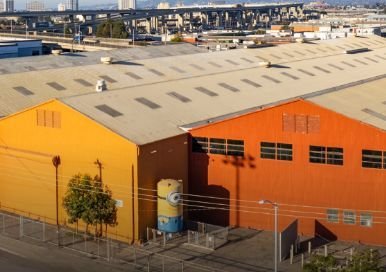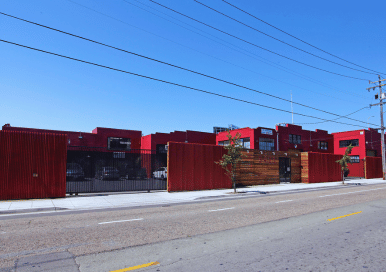
1699 West Grand Ave
Oakland, CAR&D Campus - Ready for Occupancy

Are you not sure whether to lease or buy a warehouse space?
With the rapid changes in technology, it’s important to understand each option’s pros and cons before making such a decision – especially when it comes to the economics.
While the traditional option for many companies is usually to lease warehouse space, times are changing and there has been an increase of interest recently in buying and managing warehouses on their own.
Whether you’re a director, realtor, property owner, manager or CEO looking for a new storage solution – this blog will be invaluable as we explore the potential benefits and downsides of both options.
As companies grow, their need for storage space increases. This is where warehouse leasing and ownership come into play.
Warehouse leasing allows businesses to rent a storage facility at a fixed rate, with a typical term of 5-10 years. On the other hand, warehouse ownership provides a long-term solution for companies that require a larger storage space, or simply looking to avoid supply shortages, as demonstrated by the Pandemic .
With the ever-evolving landscape of business, it’s important for companies to be innovative in their approach to warehousing solutions. By understanding the benefits and drawbacks of both leasing and ownership, you can make an informed decision that best suits your business needs.
Let’s explore the benefits and drawbacks of owning a warehouse a little deeper.
Owning a warehouse can offer businesses a number of unique benefits such as:
Having control over a warehouse allows businesses to take ownership and management decisions that are tailored specifically to their needs. By owning the warehouse, businesses can also invest in their property and build equity for it which provides them with an additional financial asset.
Control and customization, investment and equity opportunities, as well as tax benefits can make owning a warehouse an ideal option for many business owners looking to boost efficiency in their operations.
Ownership may come with some significant disadvantages:
Leasing warehouse space can have some drawbacks:

R&D Campus - Ready for Occupancy

Flexible warehouse spaces. Sizes range from 407 RSF - 18,945 RSF.
Ownership or leasing of warehouse space is an important decision for businesses. It requires examination of the business needs, financial resources, future growth and market conditions.
Ownership may provide more flexibility with regards to modifications and design but leasing is typically more economical in the short term. Before deciding between the two, business owners should compare their ability to finance ownership versus leasing costs, estimate how long they will occupy a warehouse and consider whether they need a large enough space to accommodate potential future growth.
You must look at the current market prices of leasing and owning warehousing space to make an informed decision. Leasing can be beneficial if mobility or a low-cost option is desired while ownership ensures that no restrictions on usage are imposed by landlords leasing out their space.
In today’s business climate, it’s more important than ever to have a reliable and affordable storage solution for your company. Whether you choose to buy or lease warehouse space, be sure to do your research and consider all of the pros and cons before making a decision.
A trusted partner like IPG can help you find the perfect solution for your business needs. Contact us today to get started!